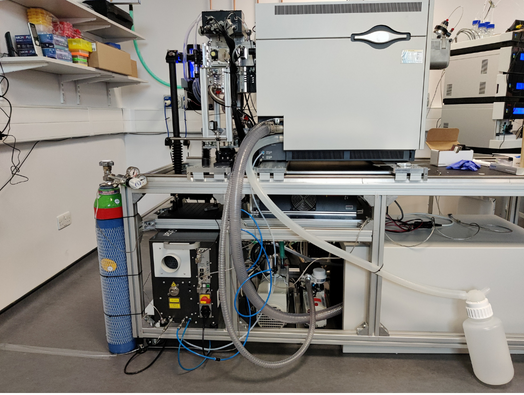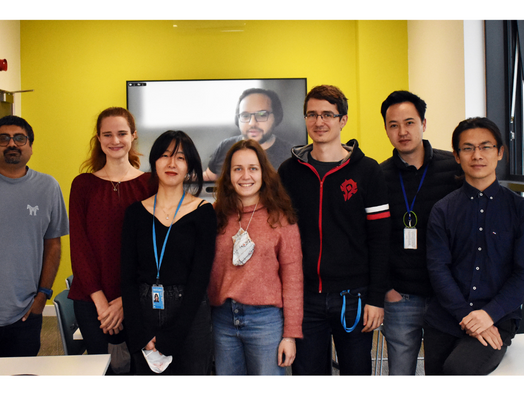Mechanistic Proteomics
Mechanistic Proteomics
Proteins are central components in living cells. Proteins operate in a highly dynamic environment interacting with other proteins and other types of molecules including sugars, lipids and nucleic acids. Unfortunately, their primary sequence is only one indicator of function. Both protein expression levels and subtle biochemical changes made to the sequence, in the form of post-translational modifications (PTM), dynamically influences its function. PTM of proteins is nature’s way to adjust structure and regulate protein function, their interactions and sub-cellular localisation. The accurate measurement of protein expression and modification in vivo is essential to understanding the underlying biomolecular determinants of cellular regulation. The field of proteomics studies various proteins and their interactions within the context of the cell. Proteomics is a rapidly developing area that spans across several disciplines from ion physics to molecular and systems biology. The mechanistic proteomics group’s central aim is to improve proteome characterisation.
We are creating new approaches to characterise protein PTMs on a proteome-wide scale. We are involved in developing new instrumentation (in conjunction with Thermo Fisher Scientific and Fasmatech) that can accommodate new modes of ion fragmentation including multiple light-, electron- and classical collision- based approaches. This will allow us to characterise PTMs as well as their context (the pertinent protein in its environment). Furthermore, we want to characterise the ion fragmentation chemistry in order to develop automated tools for analysis.
We are improving the sensitivity of cutting-edge experiments with the goal of reaching single cell proteomics. It is little appreciated that the rate and power of mass spectrometry (MS) analysis is outstripping the key chemical techniques that are coupled to it. One of the understated and most powerful aspects of the proteomics experiment is the peptide/protein chromatographic separation, new modes in chromatography have the power unleash the power of MS. We are creating new ultra-high-performance separations for proteomics that are being applied to a range of pertinent biochemicals. One key aspect is our interest in creating ultra-narrow columns which operate at low flow rates (a few nanolitres per minute) to maximise sensitivity.


In conjunction with the Ben Davis group, we are developing materials for the detection, enrichment and quantification of protein PTMs such as glycosylation and phosphorylation. These materials operate in several contexts including columns, beads as well as in cellulo.
Simultaneously, we are applying our approaches to a number of pertinent questions in biology. We are addressing questions related transcription (most recently how SARS-CoV-2 remodels the cell), cell cycle, transportation as well as several cell receptors and signalling pathways.
Project team members:
Funded by:
- Biotechnological and Biological Sciences Research Council
- Medical Research Centre
- Wellcome
- Horizon 2020
- Cancer Research Uk